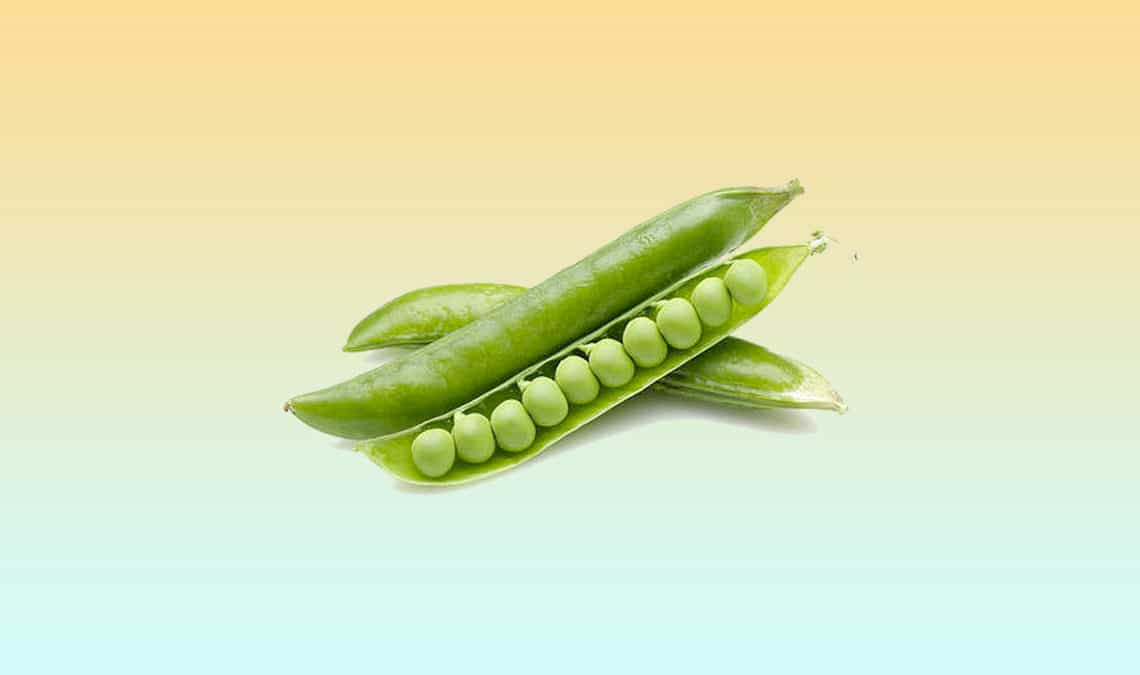
Pea protein is extracted from yellow or green peas and is a high protein source. Pea protein has all nine essential amino acids, though not quite enough of two of them, which prevents pea protein from being considered a complete protein source. There are many pea protein health benefits due to its complex amino acid profile and pea hydrolysates, including:
- Improved appetite control
- Pea hydrolysates have anti-hypertensive activity
- Restores a healthy balance in cholesterol levels
- Contains all essential amino acids for normal body functioning
- Provides a high protein diet, which aids in weight loss
Pea Protein Amino Acid Profile
Essential amino acids aren’t synthesized by the body naturally and instead come solely from what we eat. These amino acids are important for normal bodily function and particularly necessary for muscle growth and maintenance. You can find all nine essential amino acids in pea protein, however methionine is at lower levels than in other protein sources, like whey protein.
Pea protein also contains arginine and long branched-chain amino acids, like leucine. Arginine is especially great for heart health, and leucine aids in muscle growth and recovery. However, pea proteins are lower in leucine than other proteins like whey so make sure you either take leucine-fortified pea protein powders, or mix your pea protein with another protein source such as almond milk.
Is Pea Protein Good For You? A Rundown Of Pea Protein Benefits
Pea protein is a dense protein source, providing approximately 80% of its weight in protein per serving. Studies have shown that a high protein diet reduces appetite by increasing your sensitivity to leptin – a hormone which reduces hunger – therefore resulting in reduced caloric intake and weight loss.
Other benefits of pea protein powder come from pea hydrolysates which reverse hypertension, promote antioxidant activity and reduce inflammation. Pea hydrolysates also re-establish the correct balance of good gut bacteria, cultivating a healthy gut microbiome.
Hemp Protein Vs Pea Protein
Hemp protein rose in popularity as a less-refined, plant-based protein source. Hemp seeds are rich in omega-3 and omega-6 fatty acids which have their own range of benefits. Hemp protein also contains more fiber than pea protein to promote gut health. Despite this, some hemp protein powders are less digestible depending on their processing methods.
Even though hemp protein contains all 9 essential amino acids, hemp protein is even lower in leucine and other essential amino acids compared to pea protein – except methionine which is higher in hemp. As hemp protein is less refined, its protein content is much lower than pea protein.
Pea Protein Vs Soy Protein
Soy protein is a popular vegan alternative and became one of the first plant-based proteins available on the market. Soy has a lower protein content to pea protein, so pea protein is better for boosting protein consumption. However, some studies argue that soy protein falls just ahead of pea protein in terms of protein quality, though this difference is minimal.
Despite a complete amino acid profile, soy protein remains controversial as it also contains significant amounts of phytoestrogens, such as isoflavones, which can cause hormonal imbalances. Studies have consequently found that phytoestrogens affect fertility and sexual behavior in animals.
Pea Protein Vs Rice Protein
Rice protein either comes from white rice or brown rice. Brown rice contains more protein than white rice and is considered a wholegrain. Unlike pea protein, many rice protein powders are made from sprouted rice which provides extra vitamins, minerals and dietary fibers to increase antioxidant activity and gut health.
Brown rice and pea protein have a similar protein content. However, rice protein doesn’t have a complete amino acid profile and is considered a much lower-quality protein source. You will find that brown rice protein is often combined with other protein sources like quinoa and chia seeds to match the benefits of pea protein.
Pea Protein Isolate Dangers: Potential Pea Protein Side Effects
Pea protein isolate contains small amounts of antinutrients, including phytic acid, trypsin inhibitors and lectins, which can reduce nutrient absorption and cause indigestion. Soy protein isolate contains much higher levels of these antinutrients though, so pea protein isolate is far better in this regard.
Pea protein allergy is not known to be an issue. Overall, there are no significant pea protein isolate side effects and it is well-tolerated by users.
How Is Pea Protein Made?
Pea protein is either made from split green peas or yellow peas. The peas are dried and ground into a fine powder. Starch and fiber is removed to produce a pea protein isolate – we recommend taking other whole foods alongside pea protein to replenish your fiber intake.
Is Pea Protein Complete?
Technically, not quite. Pea protein has all the essential amino acids, but not quite as much methionine and cysteine as you need. However, pea protein does contain three times the amount of arginine found in whey, which is a nonessential amino acid that helps to improve cardiovascular health.
Is Pea Protein Paleo?
This is debatable since paleo doesn’t usually include legumes, however pea protein powder typically has most of the lectins and phytic acid removed, so most paleo diet coaches consider pea protein paleo.